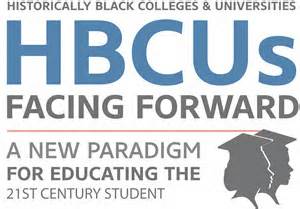
Federal changes to PLUS loans negatively impact the college attendance at historically Black Colleges & Universities
HBCUs Push Feds To Revoke Student Loan Changes
By Elvina Nawaguna
WASHINGTON, Oct 7 (Reuters) – A mere $600 stood between Christian Fair, 20, and his future this semester, when the U.S. Department of Education denied his parents a loan to help pay for his tuition and textbooks.
The federal Parent PLUS loan program allows parents of undergraduate students to help pay for their children’s college.
While qualifying for those loans already required a credit check, the DOE in 2011 unexpectedly tightened its underwriting terms to include charge-offs and medical bill collections, rendering thousands of parents ineligible.
“To me it ($600) was a big amount because my parents and I couldn’t afford it,” said Fair, a computer science student at Johnson C. Smith University in North Carolina. “I really thought I was not going to go through my sophomore year.”
His father works in maintenance for St. Lucie County in Florida and was already struggling to keep Fair in college. Fortunately, a group of alumni raised the money that Fair needed to stay in school.
But thousands more students in institutions serving largely low-to-moderate income students and racial minorities have since last year dropped out because of a spike in PLUS loan denials after the DOE tightened the terms.
Advocates for minority and low-income students are now focusing on Congress, hoping they can sway lawmakers to reverse the changes to PLUS loans and other disadvantageous reforms.
They are pinning their hopes to the Higher Education Act, a half-century old law that lays out guidelines for distributing federal student aid and is due for reauthorization next year.
In a recent joint letter, National Association For Equal Opportunity in Higher Education (NAFEO), the United Negro College Fund (UNCF) and the Thurgood Marshall College Fund asked Congress to broaden the criteria for PLUS loans and ensure that eligibility does not depend only on prior credit history.
“At this point, they need to revert back to the policy that was not broken,” said Lezli Baskerville, NAFEO president and CEO.
The groups also want the income threshold for automatic maximum Pell Grant awards to be returned to $32,000. The DOE also recently dropped the maximum income to $27,000 for Pell Grant aid to low-income students, making thousands of families ineligible.
Further, they want lawmakers to reduce the interest rates and origination fees on PLUS loans. A new law that ties student loan interest rates to the 10-year Treasury note set their interest rate 6.41 percent for this academic year, but could spike to their cap of 10.5 percent as the economy improves.
The interest rate was previously fixed at 7.9 percent.
A spokeswoman for the chairman of the House Committee on Education, John Kline of Minnesota, said the committee has been collecting input from higher education groups, including historically black colleges and universities (HBCUs), and will be exploring those issues leading to the renewal of the Higher Education Act.
SAYING SORRY
Representatives for HBCUs and minority students said they feel burned by the DOE’s sudden change to PLUS loans in 2011.
“That one took our schools and the higher education community by surprise, because no one knew it was coming,” said Cheryl Smith, senior vice president of public policy and government affairs for United Negro College Fund (UNCF). “They did it without telling anybody.”
The DOE later explained it made the changes to PLUS loans to bring underwriting standards in line with other types of loans. Education Secretary Arne Duncan has since apologized for the poor communication, and has said his department will start a new rulemaking process early next year.
Bowing to pressure from the groups, the DOE has also put in place an appeals process for parents denied PLUS loans.
But the institutions and their advocates want the changes completely reversed. The appeals process, they say, is cumbersome for the schools, students and families, and has low success rates.
According to a UNCF analysis of DOE data, as a result of the changes, PLUS loan approvals for the 2013-14 year dipped to 32 percent for initial applicants from 48 percent in prior years. Just 18,336 of the 57,542 applications were initially approved, before the appeals process.
Preliminary results from a survey by NAFEO found roughly 10,000 students from minority-serving institutions, many in good academic standing, have already dropped out of school this academic year as a result. That is in addition to thousands more who dropped out last year.
These institutions serve largely students from low-income families and groups disproportionately affected by the economic crisis and the slow recovery.
The unemployment rate for African Americans in August was 13 percent and Hispanics 9.3 percent, according the U.S. Department of Labor, compared with 6.4 percent for white Americans and the nation’s 7.3 percent.
Minority student groups warn that the loan denials will continue as the DOE revisits its changes, pointing out the rulemaking process can take up to two years and that some of the students who drop out might never return to school.
“We know the DOE has the ability to reverse this harmful Parent PLUS policy,” Smith said. “They can do it tomorrow. They can do it administratively.”



